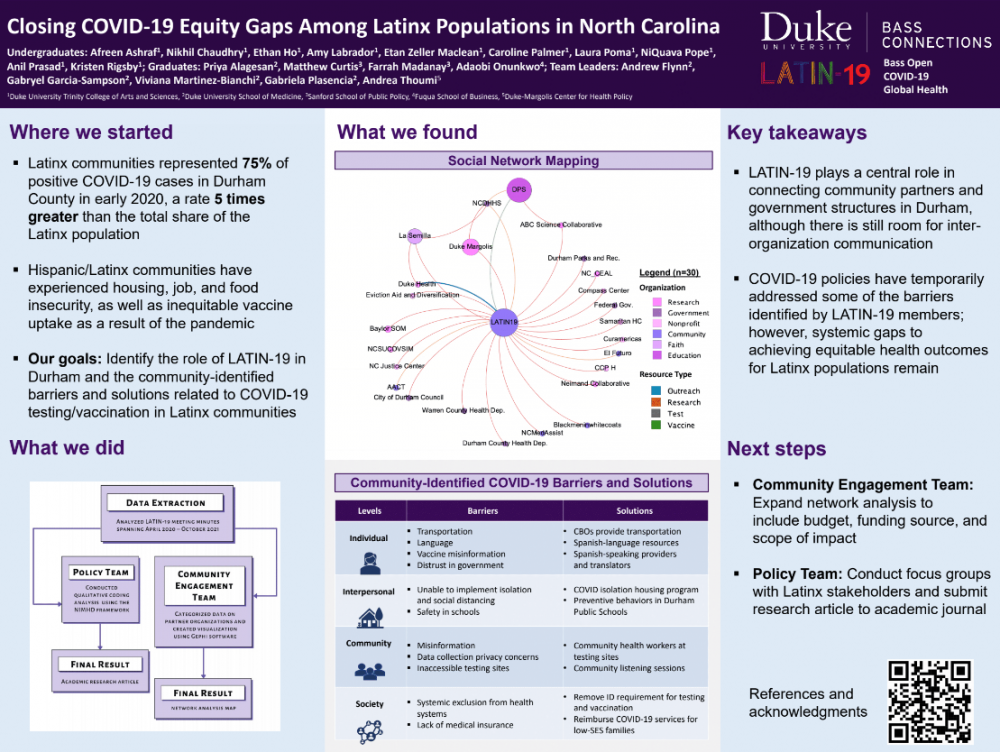Improving COVID-19 Outcomes for the Latinx Community of Durham
Project Team
Patterns of systemic exclusion from health services have a long history in the United States but have become increasingly apparent during the COVID-19 pandemic. Latinx communities represented 75% of positive COVID-19 cases in Durham County in early 2020, a rate five times greater than the total share of the Latinx population. During the pandemic, Hispanic and Latinx communities have also experienced housing, job and food insecurity, as well as inequitable vaccine uptake.
This project team's research aims were to identify the role that LATIN-19, a multisector coalition addressing the disproportionate impact of COVID-19 on Latinx communities in North Carolina, plays in Durham, and investigate the community-informed barriers and solutions to COVID-19 testing and vaccination in Latinx communities.
Team members completed a comprehensive analysis of LATIN-19 meeting minutes, including qualitative coding and social network mapping. Through this analysis, the team demonstrated the central role LATIN-19 plays in connecting community organizations and government institutions in Durham. Further, they identified systemic barriers to achieving COVID-19 equity in Latinx communities and policy strategies to overcome them.
Closing COVID-19 Equity Gaps Among Latinx Populations in North Carolina
Poster by Afreen Ashraf, Nikhil Chaudhry, Ethan Ho, Amy Labrador, Etan Zeller Maclean, Caroline Palmer, Laura Poma, NiQuava Pope, Anil Prasad, Kristen Rigsby, Priya Alagesan, Matthew Curtis, Farrah Madanay, Adaobi Onunkwo, Andrew Flynn, Gabryel Garcia-Sampson, Viviana Martinez-Bianchi, Gabriela Plasencia and Andrea Thoumi

